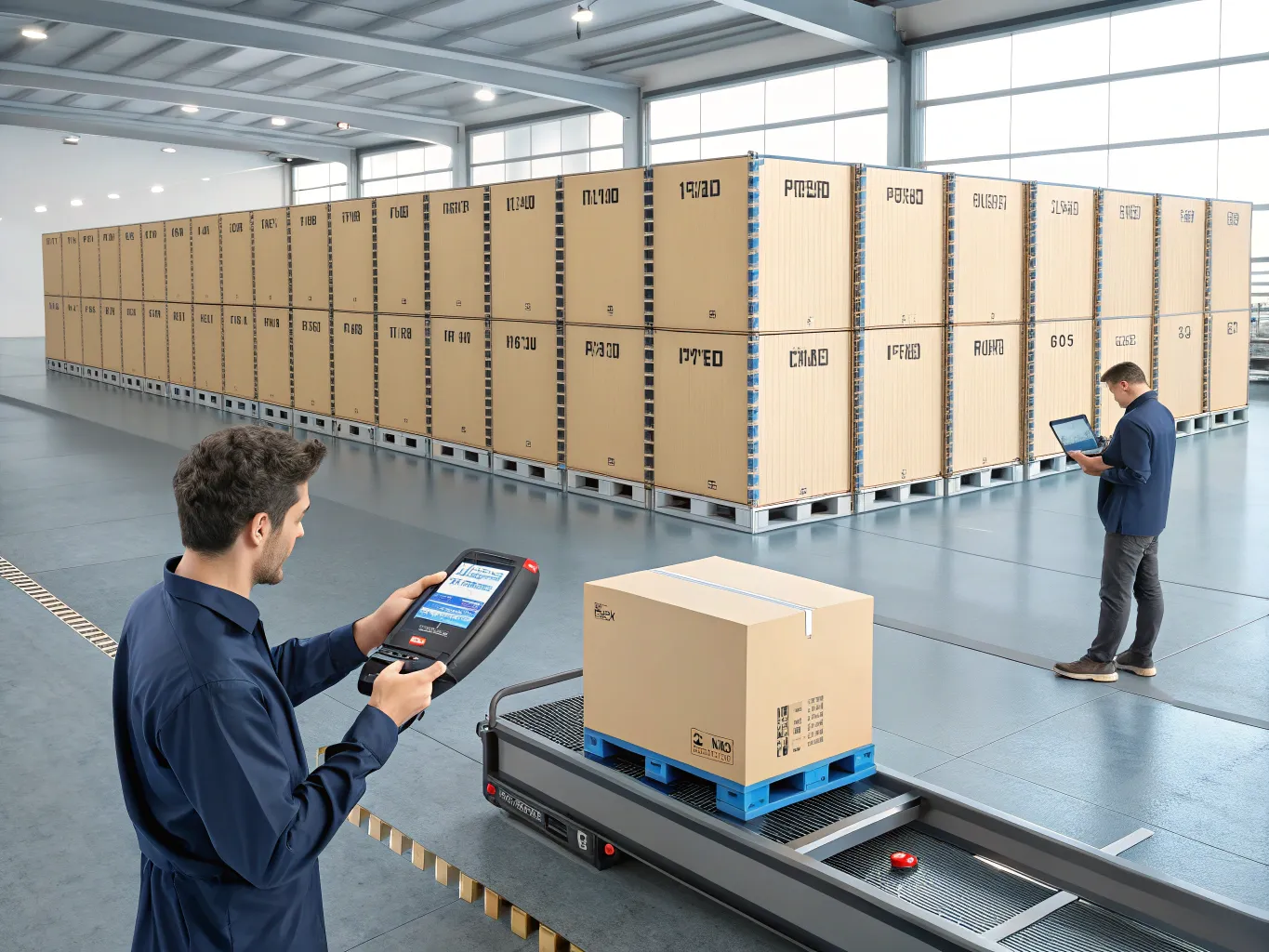
Optimize Warehousing with RFID Counting
Boost inventory precision by over 95%, cut labor expenses by up to 30%, and access real-time data with RFID Counting. Streamline processes with automated tracking that identifies discrepancies instantly, enhancing your supply chain efficiency.
Streamlining Logistics with RFID Technology


Optimize Logistics with Cost-Effective AI Solutions
Industries We Serve with Tailored Logistics Solutions
- Retail: Enhance supply chain efficiency with our tailored logistics solutions, which include real-time inventory tracking and optimized last-mile delivery strategies. Our services help retailers reduce stockouts by up to 30% and improve delivery speed by 20%, ensuring a seamless shopping experience for customers.
- Manufacturing: Streamline your production processes through our integrated logistics services. We offer just-in-time delivery solutions and efficient warehousing management that can reduce lead times by 25%, contributing to lower production costs and increased output rates. Our network ensures timely supply of raw materials and distribution of finished goods.
- Logistics: Leverage our extensive network and advanced freight management systems to improve your logistics operations. We provide end-to-end solutions including route optimization, load consolidation, and real-time tracking, which can decrease transportation costs by up to 15% and enhance delivery reliability for diverse cargo types.
- Healthcare: Ensure the timely and secure delivery of critical medical supplies with our specialized healthcare logistics solutions. We utilize temperature-controlled transportation and compliance with regulatory standards to maintain product integrity. Our systems enable healthcare providers to reduce supply chain inefficiencies by 18%.
- Pharmaceuticals: Rely on our expertise in pharmaceutical logistics for safeguarding sensitive products through stringent quality control measures and validated cold chain solutions. Our services can help pharmaceutical companies adhere to strict regulatory requirements and reduce spoilage rates by 22%, ensuring the safe delivery of vital medications.
RFID Counting and Its Logistics Benefits
- Inventory Accuracy: Implementing RFID technology enhances inventory counts by achieving up to 99% accuracy, drastically reducing discrepancies caused by manual errors. For example, a large warehouse can quickly identify stock levels with RFID tags attached to each item, enabling precise data-driven decision-making.
- Real-Time Tracking: RFID provides real-time visibility of goods in transit, allowing logistics managers to monitor shipments at every stage. This facilitates proactive management of delays due to unexpected issues such as traffic or weather, ensuring timely delivery and customer satisfaction. Companies like Amazon utilize this feature to streamline their supply chain operations.
- Increased Efficiency: By automating the scanning process, RFID systems can process up to 1000 tags per second, significantly speeding up logistical operations such as receiving and shipping. This efficiency enables faster turnaround times in distribution centers, improving overall operational throughput.
- Reduced Costs: The implementation of RFID technology can reduce labor costs by decreasing the need for manual inventory checks. Additionally, minimizing stock discrepancies and losses saves companies substantial amounts. Studies show that companies can reduce inventory carrying costs by up to 15% using RFID.
- Enhanced Data Insights: RFID systems capture detailed data on product movement and handling, providing actionable insights for supply chain optimization. This data is critical for demand planning and forecasting, helping firms anticipate inventory needs and minimize overstock and understock situations.
Comprehensive Logistics Solutions
Real-Time Inventory Management
Utilize advanced inventory management software to track stock levels instantaneously, minimizing excess inventory by up to 30% and ensuring optimal stock availability to meet customer demand without delay.
Precision Tracking
Employ cutting-edge RFID and GPS technologies to monitor shipments with pinpoint accuracy throughout the supply chain, reducing lost goods incidents by 40% and enhancing delivery reliability by providing real-time location updates.
Advanced Data Analytics
Harness big data analytics to inform strategic decisions, such as optimizing delivery routes that can lower transportation costs by 15%, and forecasting demand trends with 95% accuracy to enhance supply chain responsiveness.
Automated Time Efficiency
Implement automated inventory checks that decrease manual labor hours by 50%, streamlining operations, and allowing staff to refocus efforts on strategic tasks, thereby accelerating order processing and improving service levels.
Streamline Inventory Management with RFID

Benefits of RFID in Logistics Operations
- Accuracy Improvements: Implementing RFID technology in inventory management ensures accuracy in tracking with error rates dropping to less than 1%. This minimizes discrepancies between physical stock and system records, enabling precise demand forecasting and stock replenishment.
- Speed Enhancement: RFID systems streamline the scanning process, reducing check-in and check-out times by up to 60%. This technology facilitates real-time inventory updates, enabling faster order processing and delivery, crucial for meeting tight shipping deadlines.
- Operational Efficiency: Automating data capture with RFID eliminates manual entry, reducing human error and saving labor hours. This boosts overall operational throughput, allowing employees to focus on strategic tasks and customer service improvements.
- Cost Reduction: By preventing inventory overstock and shrinkage, RFID can cut inventory carrying costs by up to 20%. Additionally, the reduction in labor costs through process automation translates to significant savings, improving profit margins.
- Insightful Data: RFID provides granular data on inventory levels, turnover rates, and movement patterns, offering actionable insights for supply chain optimization. With this data, companies can implement lean inventory strategies and improve resource allocation.
Optimizing Inventory with RFID Counting
Enhance Your Warehousing Efficiency with RFID
You may also be interested in
Maximize your potential with our seamless, end-to-end supply chain solutions.

JIT Inventory Counting
Adopt Just-In-Time counting to cut storage expenses by up to 30%, boost operational efficiency by minimizing excess stock, and enhance supply chain agility. This method aligns inventory levels with actual demand, preventing overstock and reducing waste. Experience improved cash flow and quicker response to market changes through precise demand forecasting and timely replenishment.

Secure Storage
Protect and manage your assets with our state-of-the-art facilities, offering 24/7 monitoring, climate control, and customizable storage options. Our scalable solutions cater to industries like pharmaceuticals, electronics, and retail, ensuring compliance with industry standards. Benefit from reduced risk, improved inventory management, and enhanced operational efficiency.

Public Warehousing & Storage Services
Enhance your supply chain with our adaptable warehousing solutions. We offer over 500,000 square feet of storage designed for diverse inventory needs. Benefit from our real-time inventory tracking and climate-controlled environments, ensuring your products are safe and accessible. Our strategic locations reduce transit time by up to 25%, optimizing your logistics and reducing costs.